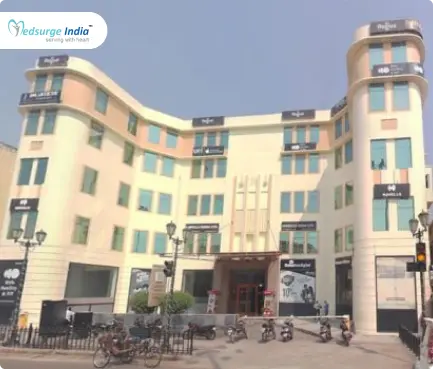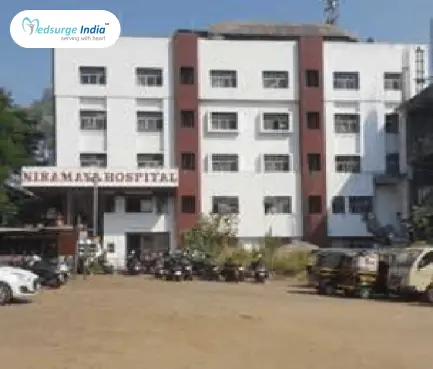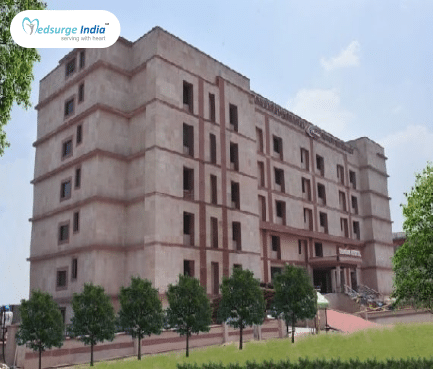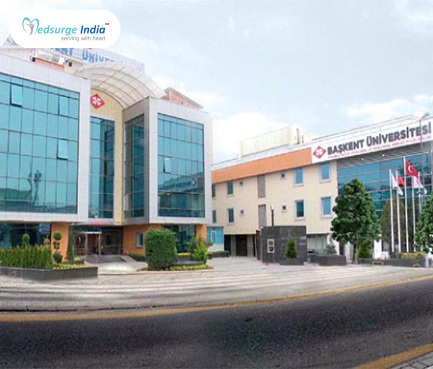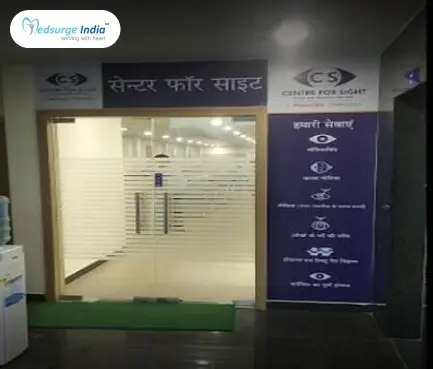
Lupus, a chronic autoimmune disease that has affected millions of people worldwide. With symptoms ranging from joint pain and skin rashes to more severe organ complications, Lupus can significantly impact an individual’s quality of life. As the quest for effective treatment continues, India has emerged as a promising destination for Lupus treatment, offering advanced medical facilities at a fraction of the cost compared to many other countries.
Lupus Treatment Cost in India, including pre-examination, surgery, and other fees, is relatively lower than the cost of surgery in many other countries. The success is partly attributable to the sophisticated medical technology found in Indian hospitals as well as the skill of surgeons. Aside from these advantages, another crucial factor for Lupus treatment in India is its appeal around the world is its inexpensive cost without compromising clinical standards.
What is Lupus?
Lupus, also known as Systemic Lupus Erythematosus (SLE), is a condition where the immune system mistakenly attacks healthy tissues. This results in inflammation and damage to various parts of the body, including joints, skin, kidneys, heart, lungs, brain, and blood cells. The disease manifests in various forms, known as types of Lupus, and its diagnosis involves understanding its distinct symptoms.
What Causes Lupus?
Lupus presently has no recognized cause. The cause of lupus is still a mystery, but research is ongoing. Although the precise etiology is unknown, there are a few things that could contribute to the illness. Possible contributing causes to lupus include:
- Environmental variables: The chance of contracting lupus can increase due to a multitude of environmental variables. Lupus may be brought on by a variety of elements, including drugs you use, viruses you may have been exposed to, stress, and how much sunshine you are exposed to. Smoking history may also be a significant factor in lupus.
- Your family’s genealogy: Lupus might have a hereditary component. Your risk of developing the illness is raised if you have lupus in your family.
- Hormonal changes: Women are more likely than men to develop lupus, which may be partially attributed to hormones like estrogen. Higher estrogen levels and women of reproductive age (between 15 and 44) are associated with an increased risk of developing lupus.
What Are The Types of Lupus?
The types of Lupus include:
- Systemic Lupus Erythematosus (SLE): The most common form, affecting multiple organs.
- Discoid Lupus Erythematosus: Primarily affects the skin, causing rashes and sores.
- Subacute Cutaneous Lupus Erythematosus: Presents as skin lesions triggered by sun exposure.
- Drug-induced lupus: Occurs due to certain medications and usually resolves after stopping them.
- Neonatal Lupus: Rare, affecting infants born to mothers with Lupus antibodies.
What Are The Symptoms of Lupus?
A patient who has lupus could suffer a wide range of symptoms. The signs of lupus may and can vary from person to person. Additionally, many of these symptoms are similar to those you can encounter from other medical disorders. Identifying someone with lupus can be challenging in this regard.
Lupus symptoms may take time to manifest. Over time, you can experience new symptoms. Additionally, the degree of your symptoms may alter with time. When symptoms are in remission, they may occasionally be scarcely noticeable, but occasionally they may also flare up. When a symptom abruptly gets worse than it was, it is said to be in a flare-up.
Symptoms of Lupus include:
- Seizures.
- Blood clots.
- Anemia.
- Raynaud’s phenomenon.
- Swollen glands.
- Headaches.
- Confusion.
- Depression.
- Issues with the kidneys, heart or lungs.
- Hair loss.
- Mouth sores.
- Dry eyes.
- Fatigue.
- Chest pain.
- Stomach pain.
- Shortness of breath.
How is Lupus Diagnosed?
Diagnosing Lupus involves a combination of clinical examinations, blood tests, and imaging studies. Antinuclear antibody (ANA) testing may also be done by the healthcare provider. This examination looks for antibodies, which are proteins produced by your body to fight infection and may indicate the presence of an autoimmune disease. ANA tests for systemic lupus erythematosus patients frequently result in a positive result.
Lupus treatment focuses on managing symptoms, preventing flare-ups, and reducing inflammation. This typically involves a combination of medications, lifestyle changes, and, in severe cases, surgery. Medications range from anti-inflammatory drugs to immunosuppressants, depending on the severity of the disease. In some instances, biologic therapies may be recommended. Regular medical follow-ups are crucial to monitor the disease’s progression and adjust treatment as needed.
Cost
The average Lupus treatment cost in India starts from USD 2100. The choice to have the surgery is based on the patient’s clinical condition as indicated by diagnostic results and clinical symptoms.
Get Free Cost Estimation
Procedure
Factors That Can Affect Lupus Treatment Cost in India
The entire cost of Lupus Treatment in India can vary depending on a number of criteria, such as. Lupus treatment cost in India may vary based on the hospital’s preferences, the doctor’s expertise and experience in the field, the patient’s specific condition, including the need for supplementary treatments, the length of hospitalization required, and the necessity for post-operative care. Additionally, the pricing of Lupus treatment in India can be influenced by the category of hospital chosen and the type of accommodations opted for during your stay.
These are the main reasons and factors that is driving thousands of patients to India from around the globe for medical care. For foreign patients traveling to India, Medsurge India provides the finest Lupus treatment cost in India at a reasonable cost, all while being supervised by top medical professionals. Click here to learn more about the medical visa form.
Why do Patients Prefer to Have Lupus Treatment in India?
India has gained recognition as an excellent destination for Lupus treatment due to several factors:
- Cost-Effective Treatment: The Lupus treatment cost in India is significantly lower than in many Western countries, making it a budget-friendly choice for patients seeking high-quality care.
- Experienced Medical Professionals: India boasts a pool of well-trained medical professionals and specialists who are adept at diagnosing and treating complex autoimmune disorders like Lupus.
- State-of-the-Art Facilities: Many hospitals and healthcare centers in India are equipped with advanced technology and infrastructure to provide comprehensive Lupus care.
- Holistic Approach: Indian medical institutions often offer a holistic approach to treatment, combining conventional medicine with complementary therapies and lifestyle guidance.
- Cultural Diversity: India’s diverse culture and warm hospitality can contribute positively to a patient’s emotional well-being during their treatment journey.
Lupus is a challenging condition that requires consistent medical attention and care. With its affordable treatment costs, skilled medical professionals, and world-class facilities, India emerges as a beacon of hope for individuals battling Lupus. As advancements in medical science continue, patients can look towards India for effective Lupus treatment that not only addresses their medical needs but also respects their financial concerns. The comprehensive approach to care ensures that patients receive the best possible chance at managing their condition and reclaiming their lives from the grip of Lupus.
How is Lupus Treated?
Lupus, a complex autoimmune condition, requires a multifaceted approach to treatment. Effectively managing its symptoms and minimizing its impact on daily life demands a comprehensive strategy tailored to each individual. Here, we delve into the key aspects of Lupus treatment, shedding light on the various approaches that contribute to a better quality of life for those living with this condition.
Medication Management
Medications play a crucial role in controlling Lupus symptoms and preventing flare-ups. Depending on the type and severity of Lupus, physicians may prescribe a range of medications, including:
- Nonsteroidal Anti-Inflammatory Drugs (NSAIDs) for managing pain and inflammation.
- Antimalarial drugs to reduce skin rashes and manage joint pain.
- Corticosteroids for suppressing inflammation during severe flare-ups.
- Immunosuppressants to modulate the immune response and control disease activity.
- Biologic therapies targeting specific immune pathways involved in Lupus.
Lifestyle Modifications
Adopting a healthy lifestyle can significantly impact the course of Lupus. Prioritizing regular exercise, maintaining a balanced diet rich in nutrients, and getting sufficient rest can enhance overall well-being. Additionally, protecting skin from sun exposure and stress management techniques can help prevent flare-ups.
Personalized Treatment Plans
Lupus affects individuals differently. Therefore, a personalized treatment plan is essential. Physicians collaborate closely with patients to understand their unique symptoms, concerns, and medical history. This collaborative approach ensures that treatment aligns with the individual’s needs.
Monitoring and Follow-up
Regular medical check-ups are crucial for tracking disease progression and treatment effectiveness. Ongoing monitoring allows for timely adjustments to medications and interventions, preventing potential complications.
Integrative Therapies
Complementary therapies such as acupuncture, yoga, and meditation can offer additional relief and contribute to stress reduction. These practices support the body’s natural healing mechanisms and promote overall well-being.
How to Choose a Hospital for Salpingectomy Surgery in India?
Hospitals that treat Lupus Treatment in India are renowned for their services in patient care and hospitality. The hospitals that do Lupus treatment in India have some of India’s top doctors and specialists who are experts in their professions. For an international patient, selecting a good hospital for treatment might be challenging. It is a crucial choice that needs to be made while keeping a number of things in mind, such as:
- Quality certificates and accreditations
- Hospital and transportation facility location
- Team of doctors and surgeons
- Advanced diagnostic and therapeutic equipment
- International patient assistance
How can Medsurge India Help?
For people and patients looking for doctors, hospitals, and specialized treatments all across the world, Medsurge India serves as a distinguished ally. Finding the best medical options that are suited to your symptoms and requirements is the focus of our dedicated staff’s efforts. Our staff is committed to providing a list of reliable, registered medical professionals and healthcare facilities that are in line with your unique medical needs. Additionally, we offer treatment plans that take your budget into account and offer patients our assistance in obtaining travel authorizations, medical e-visas, and a variety of other crucial arrangements.
The Most Important Frequently Asked Questions
Q1: Is lupus a serious disease?
A1: If your systemic lupus erythematosus (SLE) symptoms are minor or under control, you may discover that they have little to no impact on your daily life and that you do not have any consequences. However, for individuals, SLE can be a more serious condition with potentially fatal complications.
Q2: Can lupus be cured?
A2: If you have signs of lupus, consult your doctor. A chronic condition with no known cure is lupus. It will thus not go away, but you can manage it with medication. Treatment can help alleviate your symptoms, stop flare-ups, and stop other health issues frequently brought on by lupus.
Q3: Is lupus a cancer-causing condition?
A3: Although the danger is tiny, having lupus seems to raise your risk of developing cancer. death of bone tissue. This happens when the blood flow to a bone decreases, which frequently causes little breaks in the bone before the bone eventually collapses.
Q4: Can lupus become better as you age?
A4: No. A chronic condition, lupus. Age may cause some people’s symptoms to reduce, but lupus never goes away.
Q5: Does lupus call for chemotherapy?
A5: An autoimmune disorder called lupus causes the immune system to wrongly assault healthy body structures and cells. To treat lupus, doctors may use chemotherapy medicines. These drugs control excessive immune responses, which reduce inflammation, prevent organ damage, and enhance quality of life.




